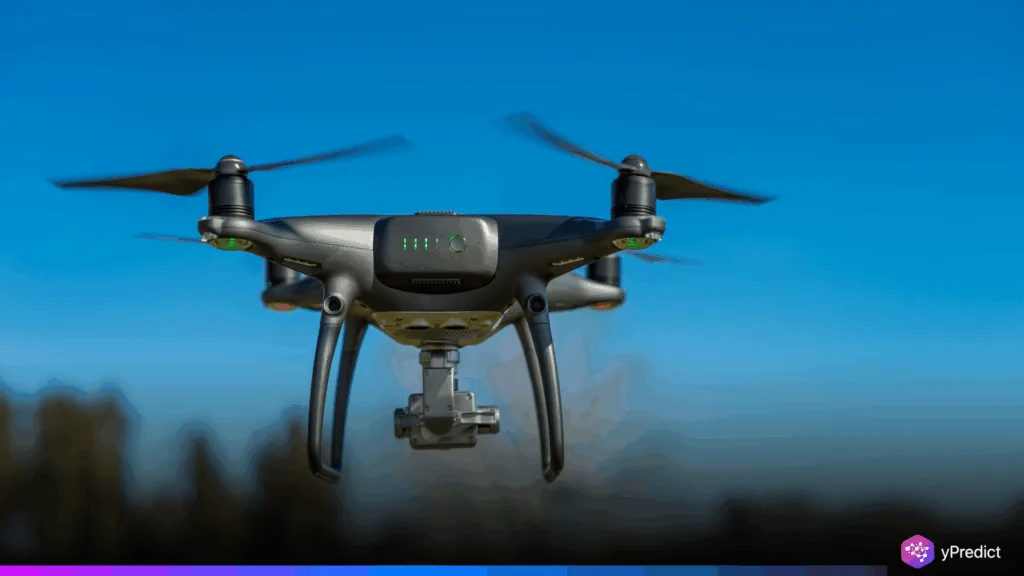
Ukraine has signed a $71 million contract to scale its production of FPV interceptor drones. Marking a major move in its defense strategy against Russia’s use of Shahed drones. These loitering munitions, often equipped with foreign-made components, have posed significant threats to Ukrainian infrastructure. But now, Ukraine is turning to artificial intelligence to fight back. U.S.-based Swift Beat, led by Eric Schmidt, is supplying AI-enhanced drones reported to intercept 90% of Shahed targets. This effort not only demonstrates Ukraine’s technological resilience but also highlights a new era of drone warfare. Shaped by global partnerships and algorithmic precision.
Ukraine’s FPV Drone Expansion Aims to Neutralize Shahed Strikes
Amid the ongoing conflict, drones have become central to battlefield tactics, both for surveillance and for direct attacks. Ukraine, under relentless assault from Shahed drones supplied by Iran to Russia. Now, countering with a new wave of FPV interceptor drones. These small, agile unmanned vehicles are designed to seek and destroy aerial threats in real time. The $71 million deal was led by Ukraine’s Ministry of Digital Transformation. Will result in tens of thousands of these drones being produced. To bolster frontline air defenses and counter saturation attacks that strain traditional systems.
FPV interceptor drones offer a cost-effective and high-output mitigation to eliminate incoming threats. Running semi-autonomously and being able to be deployed in a short timespan. They become an efficient countermeasure against the use of loitering munitions such as the Shahed-136. This has been greatly utilized to strike energy infrastructure and civilian localities. The deal is a part of a larger project to increase national production of drones and create autonomous defense technology. That would apply to warfare of modern days. This self-sufficiency agenda also comes along with association with local banks and local, privately run tech sectors to guarantee exponential, speedy growth and consistent survival.
Swift Beat’s AI Drone Technology Gives Ukraine a Strategic Edge
Swift Beat, a U.S.-based company founded by former Google CEO Eric Schmidt, is a key contributor to Ukraine’s drone strategy. The company signed an agreement with Ukraine in Denmark on July 3, 2025, committing to supply hundreds of thousands of AI-enhanced drones by year’s end. These models aren’t just fast; they’re smart. Equipped with autonomous targeting systems, real-time data processing, and adaptive flight patterns, they offer a distinct advantage in intercepting fast, unpredictable threats like Shahed drones. The reported 90% interception success rate signals the effectiveness of these technologies in actual battlefield conditions.
AI not only accelerates reaction time but also allows drones to detect and track targets independently. This innovation counters Russia’s reliance on cheaply built, foreign-part-sourced drones. A British government report from 2022 highlighted the vulnerability of Shaheds, noting that many rely on Western components like Texas Instruments chips. Ukraine’s AI-driven interceptors exploit these weaknesses, identifying behavioral patterns and using predictive movement analysis to strike with precision. In an environment saturated by low-cost enemy drones, the ability to respond autonomously and efficiently becomes crucial, and Swift Beat’s tech appears to be shifting the balance.
AI-Powered Partnerships Are Redefining Battlefield Defense
Ukraine’s investment in FPV interceptor drones advanced with the help of AI from Swift Beat, which is not merely a new tactical capability but also a strategic pivot like new warfare. Russia is launching swarms of cheap loitering drones, and in these circumstances, agile, smart countermeasures of Ukraine can fit the requirements of such a scale and at a relatively low cost. The program not only enhances the short-term strategy of Ukraine but also creates an example that demonstrates how things should be done in the future, and AI should assume one of the key positions in the battle logistics and decision-making process.






